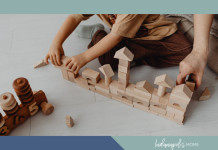Sure, we have mammalian instincts to feed our children, protect them, and bathe them. In a truly primal world where there aren’t awkward playground rules and debatable ethics, I would say we are born with an inner understanding of motherhood. But what does that look like in the complex human world we actually live in? Especially in a country where family values vary drastically and women have a painfully short six weeks to adjust to their new role in life, if that. (Read any of my other blog posts and you will see that this six week window was a blur to me and that I could argue six months being short.) It’s my understanding though, that most women have a role model in their life to teach them the basics: their own mother. Ideally, our mothers are wonderful and sweet and caring, and when we look back on our childhood, we feel loved. They pass to us a female perspective on life and parenting. This is extremely important when we ourselves become mothers. I know this because, up until I had my son, I had no idea how not having a mother that was available to me – that showed unconditional love, that helped me understand my own emotions, or teach me the ebb and flow of life – truly affected my own ability to be a mother. How could I have known before then just how much I missed out on? Are we born with an inner mother?
I always assumed my inner mother would kick in. I am a woman, I would think, I must have maternal instincts. And in fair honesty, it did to some degree. I was fortunate that after the fog of hospital drugs and no sleep, I was still able to begin the bonding process with my baby boy. And what a whopper of a shock that was. I can’t be sure that my mother and I didn’t bond, but I do know that I wasn’t with her after my birth, for a long time. The unwavering connection that parents have with their children wasn’t present, not at my birth and not today. I was gifted a mother with a myriad of mental illnesses and addiction – someone who exists for themselves, and so, sadly missed their chance to parent and experience reciprocal love. Bonding with someone that can’t reciprocate love is not possible, but sadly something that children will never relent. Children NEED love and affection to thrive.
When I realized that every single cell in my body was falling madly in love with my son, I was in awe of God and the universe and the amazement of life while simultaneously devastated by the immediate realization of what I had missed out on for 33 years. It had never been more clear. And while I did grasp the concepts to some degree – sippy cups and breast milk and cloth diapers and Twinkle Star – when it came to accepting the immense challenge of motherhood, I was reluctant to say the least. Because my own mother was such an absent parent, I had no idea how present I would need to be. Motherhood is presence. A lot of it. I had to slowly collect all of the puzzle pieces of myself and reconnect them with some sort of order. I felt like a toddler learning a new skill and I was as excited as I was terrified. Some pieces were torn, weathered, or just plain missing. I spent months trying to shove squares inside of circles and glue down pieces so the winds of doubt wouldn’t carry away all of my work. As a whole picture began to emerge, I realized that, regardless of my own understanding of what a mother was, I was starting to look like one. My son called me “mama” and that sealed the deal. He loved me as his mother. He loved the mothering I gave him- the same mothering that I was ever so critical over out of the assumption that it was somehow deficient.
I had no idea at the time that I was, in fact, doing it right all along.
I often wonder though, how other women grasped the concept of motherhood. Did you just wake up to it and it fit like a glove? Did you rely on your own mother to help you through the rough nights and scary patches?








